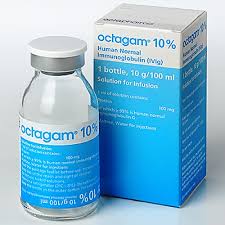OCTAGAM
Reimbursement Octagam
7/15/20212 min read


Accurate reimbursement and compliance for OCTAGAM® (immune globulin intravenous [human]) depend on proper billing and coding. Here are several important rules:
HCPCS Code: J1568: 500 mg intravenous injection of immune globulin (OCTAGAM), non-lyophilized (liquid, for example).
Billing Example: Report four units of J1568 for a dosage of 2,000 mg (2 g) of OCTAGAM.
CPT Administration Codes:
96365: Initial, up to one-hour intravenous infusion for diagnosis, treatment, or prevention.
Use: Suitable for the first hour of OCTAGAM intravenous infusion.
96366: Intravenous infusion for diagnosis, treatment, or prevention; every hour.
oUsage: After the initial hour of infusion, report for each extra hour.
Diagnose Codes: The patient's condition should be reflected in the appropriate ICD-10-CM diagnosis codes. The following are typical codes linked to OCTAGAM therapy:
Hereditary hypogammaglobulinemia (D80.0).
D80.1: Hypogammaglobulinemia that is not familial.
D80.2: Immunoglobulin A [IgA] defect that is selective.
D80.3: Immunoglobulin G [IgG] subclasses with selective deficiencies.
D80.4: Immunoglobulin M [IgM] deficiency that is selective.
D80.5: Increased immunoglobulin M [IgM] due to immunodeficiency.
D80.6: Antibody deficiency accompanied by hyperimmunoglobulinemia or immunoglobulins that are close to normal.
D80.7: Infantile transient hypogammaglobulinemia.
D89.2: Unspecified hypergammaglobulinemia.
The National Drug Code (NDC) for OCTAGAM 5% 1 g in a 20 mL single-use vial is 68982-0802-01.
68982-0802-02: 50 mL single-use vial of OCTAGAM 5% 2.5 g.
OCTAGAM 5% 5 g in a 100 mL single-use vial (68982-0802-03).
OCTAGAM 5% 10 g in a 200 mL single-use vial (68982-0802-04).
OCTAGAM 5% 25 g in 500 mL single-use vial (68982-0802-05).
Billing considerations: Drug Waste Reporting: Report any drug that is thrown away from single-use vials using the JW modifier. In the patient's medical file, note how much was given and how much was thrown away.
Location of Service: OCTAGAM is usually given at a doctor's office that is prepared to handle infusion treatments or an outpatient hospital.
Documentation: Keep thorough medical records that include the diagnosis, treatment plan, dosage, administration route, and any medication waste. This paperwork helps with the processing of claims and shows medical necessity.
Other Resources: Pfizer IGuideTM: Provides assistance to healthcare practitioners, including aid with prior authorization, benefits verification, appeals, coding and billing details, and specialty pharmacy choices.
